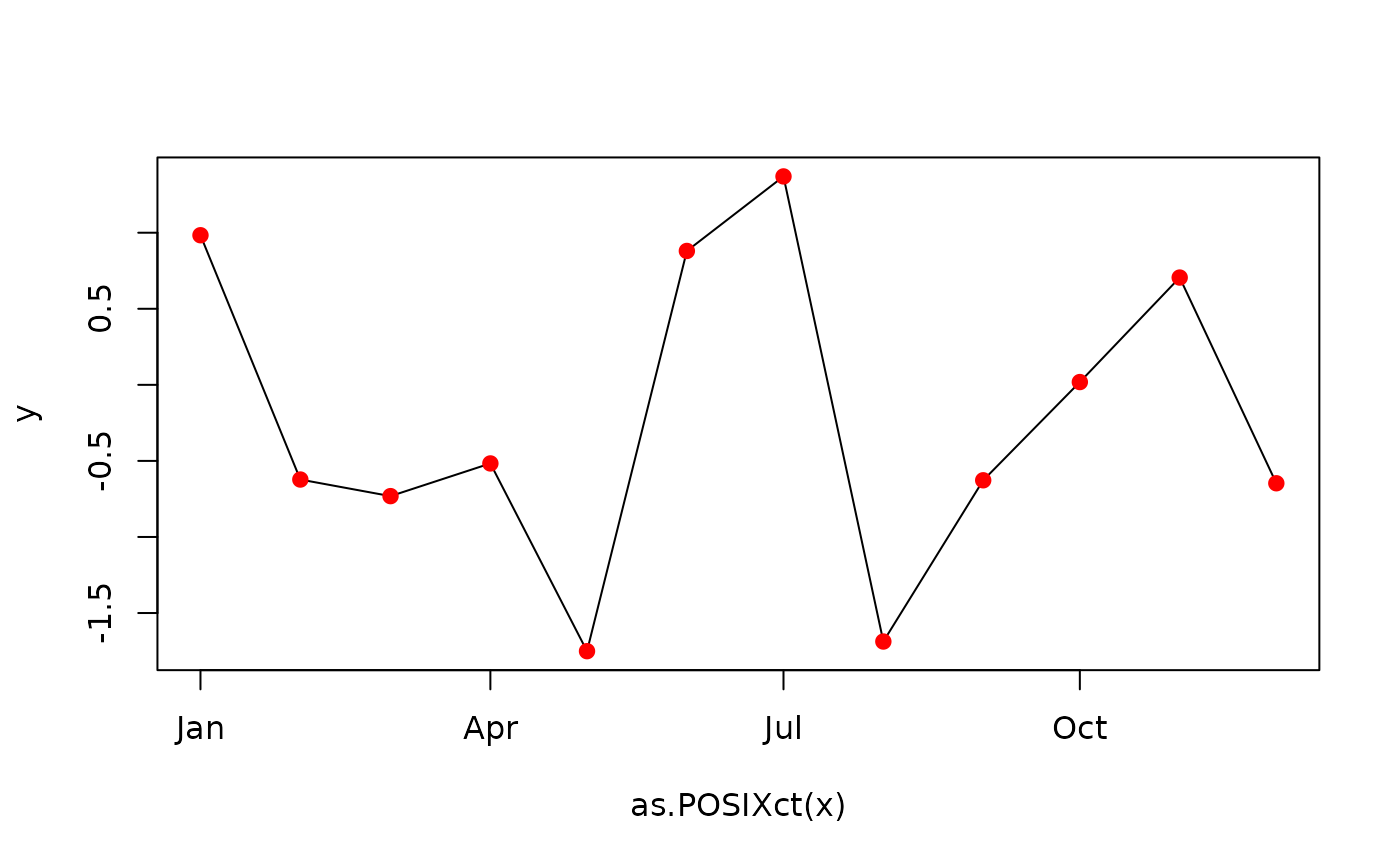Plot methods
graphics-plot.RdPlot methods for "timeDate" objects.
Usage
# S4 method for class 'timeDate'
plot(x, y, ...)
# S4 method for class 'timeDate'
lines(x, y, ...)
# S4 method for class 'timeDate'
points(x, y, ...)
axis.timeDate(side, x, at, format = NULL, labels = TRUE, ...)
# S3 method for class 'timeDate'
pretty(x, n=5, min.n=n%/%3, shrink.sml=0.75,
high.u.bias=1.5, u5.bias=0.5+1.5*high.u.bias,
eps.correct=0, ...)Arguments
- x, y, at
an object of class
timeDate.- side
an integer specifying which side of the plot the axis is to be drawn on. The axis is placed as follows: 1=below, 2=left, 3=above and 4=right.
- format
a POSIX format string, e.g. "%Y-%m-%d".
- labels
either a logical value specifying whether annotations are to be made at the tickmarks, or a vector of character strings to be placed at the tickpoints.
- n
an integer giving the desired number of intervals.
- min.n
a nonnegative integer giving the minimal number of intervals.
- shrink.sml
a positive numeric by a which a default scale is shrunk in the case when range(x) is very small.
- high.u.bias
a non-negative numeric, typically > 1. Larger high.u.bias values favor larger units.
- u5.bias
a non-negative numeric multiplier favoring factor 5 over 2.
- eps.correct
an integer code, one of 0, 1, or 2. If non-0, a correction is made at the boundaries.
- ...
arguments passed to other methods.

